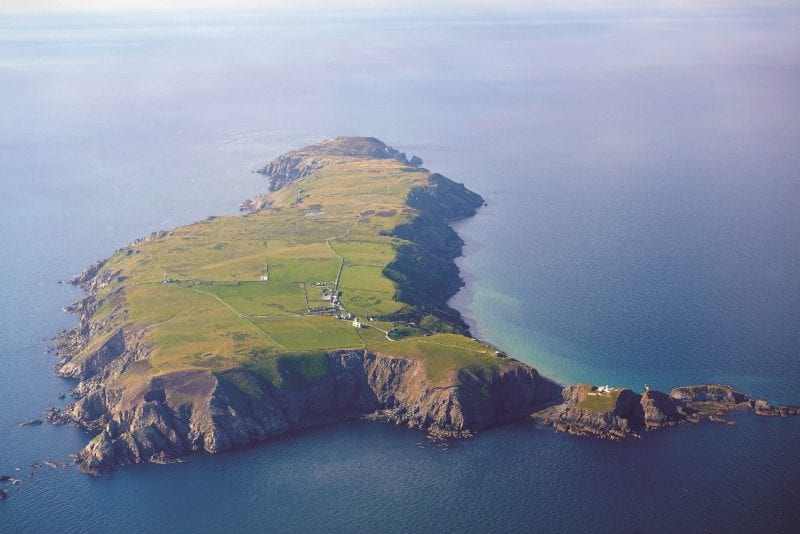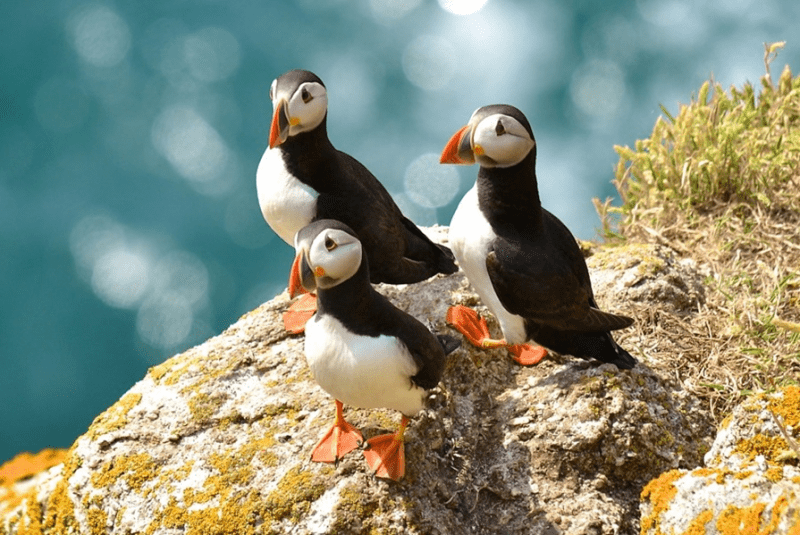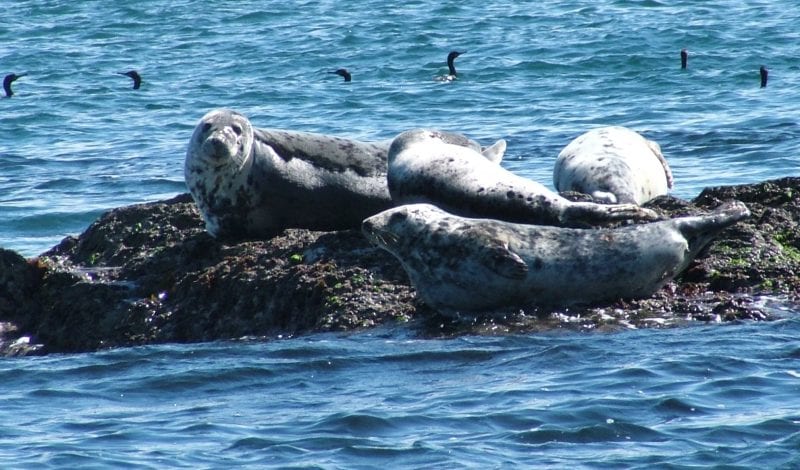Get ready for winter with Haldon Forest Park
Haldon Forest Park is the perfect place to get outdoors this winter. If it’s your first visit, you might be…
Read More
An urgent appeal has been launched to secure the future of Lundy. The exquisite island, located just 12 miles off the Devon coastline, is facing severe financial hardship in wake of the Coronavirus pandemic.
Lundy is the UK’s first-ever Marine Conservation Zone, a Special Area of Conservation and a Site of Special Scientific Interest. The island’s diverse terrestrial and marine habitats support rare species of birds, insects, marine life and plants. There are 43 scheduled monuments, numerous important archaeological sites and a diverse range of historic buildings, almost all in the island’s own distinctive granite. It is home to 28 members of staff who permanently live on the island, working year-round to protect and nurture the unique environment, supports a further 15 jobs on the mainland and works with around 200 local businesses and suppliers in North Devon. It is a well-loved destination for thousands of visitors each year.
Lundy is almost entirely reliant on income from visitors. In 2019 alone, the island welcomed over 20,000 holidaymakers, day trip visitors, local school groups and conservation volunteers. Yet with the national lockdown due to Covid-19, for the safety of all visitors and staff, Lundy closed on 23 March 2020 and remained shut for 14 weeks. The three long months of closure was a devastating financial blow – significantly depleting the island’s reserves and jeopardising future conservation works to the nationally important site.
The island has now reopened, with new Covid-secure measures, for holidays and day trips. Yet with social distancing limiting the number of possible visitors, Lundy’s long-term financial future remains an acute risk.
Thanks to the National Lottery and its players, The National Lottery Heritage Fund has granted Lundy £250,000 from its Heritage Emergency Fund. However, this generous grant will only go so far.
The public appeal today launched will help ensure continued, secured access to the island. Contributions will maintain the historic passenger and supply vessel MS Oldenburg, the island’s infrastructure and the livelihoods of Lundy staff. Contributions will also help continue the outreach programme with local schools, the conservation education programme and ongoing works to maintain and protect the remarkable land and seascapes.
Derek Green, Lundy General Manager said “Lundy is a granite outcrop rising 400 feet out of the sea, a peaceful haven commanding tremendous views of England, Wales and the Atlantic. But it is also home to an extraordinary range of important marine and wildlife, along with a small community of dedicated people who work tirelessly throughout the year to conserve the habitats and historic structures which make the island so special. In these extremely difficult and challenging times, we don’t ask for help lightly – but every donation to our urgent appeal will help secure the future for the island, and its way of life, that tens of thousands of visitors know and love.”
Just months before lockdown, celebrations had taken place to mark Lundy’s 50th anniversary and a new lease between the National Trust and Landmark Trust. In the 50 years of partnership between the two charities, significant conservation highlights have included successfully eradicating rats from the island, resulting in the tripling of seabird numbers. From a low of just 13 individuals at the turn of the century, there are now more than 400 puffins on Lundy and numbers of Manx shearwaters rose from 297 breeding pairs in 2001 to 5,504 by 2018. There have been multiple award-winning building rescue projects, most recently including the refurbishment of St Helen’s Church, and in 2019 the installation of a new water treatment plant enabled the community to become plastic free. Through work with local support groups, the island has become increasingly accessible for those with physical, sight or hearing impairments, and each year hosts free stays for charities through the Landmark Trust’s ‘50 for Free’ scheme.
Dean Woodfin Jones, Lundy Warden said “Lundy is home to a host of rare and ecologically significant plants and animals, including nationally important seabird colonies, endemic plants and insects and endangered marine life. Every donation we receive will safeguard the island’s future, protect its wildlife and ensure specific conservation projects, which have progressed of the past 50 years, are not undone. It is vital that we continue to protect the island’s unique habitats, and that our conservation and education programmes can continue to inspire future generations of conservationists.
For further information and to donate, please visit the Lundy Island Appeal link below.
Lundy Island Appeal




06 Jan
Haldon Forest Park is the perfect place to get outdoors this winter. If it’s your first visit, you might be…
Read More
04 Dec
Devon’s Top Attractions brought their year-long 40th anniversary celebrations to a proud close with their Annual General Meeting (AGM) on…
Read More